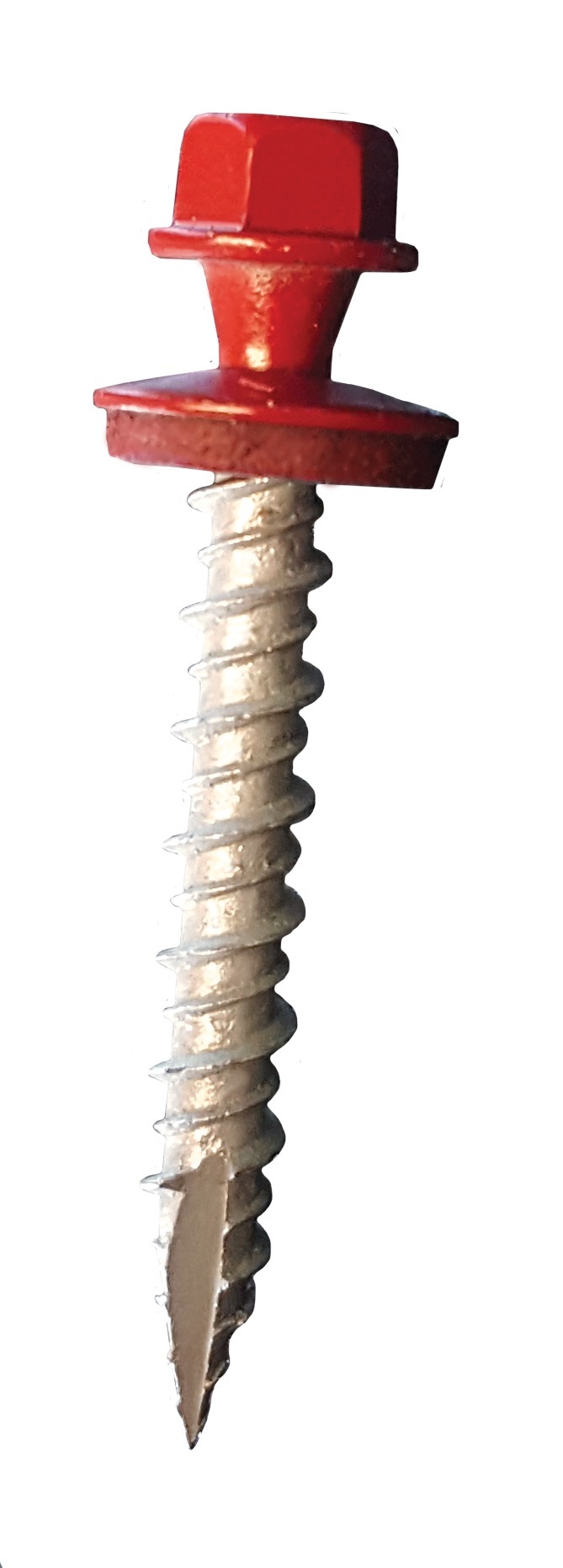Fasteners are engineered components that are closely specified. Specifications and standards determine the best fastener for any job. When purchasing fasteners, it’s important that your suppliers know and understand everything about the fastener; they should know everything from the raw wire to the end product. It’s important the supplier knows that information.
When it comes to fasteners, know what you’re getting

Bottom line: The builder must be able to trust the supplier.
Testing
There are several tests conducted by suppliers to ensure fastener durability. ASTM B117 is the accelerated salt fog chamber test, or what everyone calls the salt spray test. That’s still the test everyone uses to compare the durability of fastener coatings. It provides an even playing field for comparison.
ASTM B117 is the oldest and most widely used of the salt spray tests, with roots as early as 1914 in the National Bureau of Standards. In 1939, it was formalized as B117 specification by the American Society for Testing and Materials (ASTM).
ASTM G87 is the moist cycle test conducted in the Kesternich test chamber. It’s a test that goes from moist to heat to dry. It replicated exposure to acidic environments. Actually, you could get the same results by hanging fasteners on the bottom of your truck and driving around Milwaukee all winter, splashing through the snow, slush and salt. The Kesternich test chamber provides a controlled accelerated test.
In a closed container in which the test samples are exposed, during the first eight hours an atmosphere of 100 percent humidity at a temperature of 40 C is maintained. At the start of these eight hours, a certain amount of sulfur dioxide (SO2) is added. After the eight hours, the cabinet is vented and heating switched off. The samples are conditioned for the next 16 hours at room temperature and ambient humidity. After this, the test cycle is repeated for the next 24 hours. This continues until the number of cycles required, which can vary from two to 50 or more.
Some suppliers will conduct a galvanic corrosion test to determine the reaction with dissimilar metals. If the fastener and the proprietary substrate are dissimilar metals, it’s important to know how they will react when used together. Some metals can be very corrosive in these situations, severely compromising the structure’s durability.

Environment
It’s also important for builders to be aware of the environmental conditions installed fasteners will be subjected to. For instance, in the Western Plains, it’s dry; there’s no salt from the ocean and very little acid rain. On the East Coast, you may be dealing with salt from the ocean and urban chemical issues.
A good supplier will say, “You know, you’re building all over the country and you may need different fasteners for different environments. That one fastener may not work best everywhere.” Florida is known in the construction industry for having the strictest codes and this applies to fasteners as well. Every environment can provide unique challenges and it’s important to be aware of those challenges.
Fastener Make-Up
Again, it’s important your supplier has all the information you need on the fasteners you’re purchasing. Fasteners are tested for tensile strength and the torque they can handle when being installed. Is the shank solid? How fast (drilling speed) can a screw penetrate into various thicknesses of steel? It’s about quality assurance and all suppliers should be able to confidently sell you their fasteners.
Fasteners are produced by the dump truck load, so make sure you’re buying fasteners that meet the requirements of your job. The Rockwell hardness test determines the durability of the outside surface of the screw; the surface has to be hard enough to handle drilling speeds.
A screw’s core hardness has to be limited to ensure the screw has ductility. Ductility is the opposite of brittleness. A screw’s core should have enough ductility to prevent unexpected fractures. You don’t want it too brittle.
In terms of brittleness, powder-coated versus wet painted fasteners react differently to impact drivers. Powder coatings are more brittle and thus, more susceptible to damage from an impact driver. With powder-coated fasteners, it’s better to use a drill driver with a clutch.
A final note: It’s important to understand any warranty you receive from your fastener supplier. Take the time to know what it’s really saying.
Al Geisthardt, PE, is responsible for product development at East Coast Fasteners & Closures, Elkhart Lake, Wis. East Coast Fasteners produces durable, long-lasting fasteners for all combinations of building materials. To learn more, call (800) 558-5895 or visit www.plyco.com.





